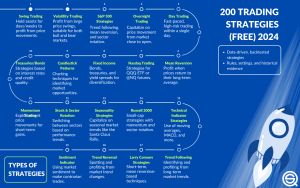Exploring the Benefits of Index Fund Investing
3 min read
Index funds offer built-in diversification. By tracking numerous stocks, index funds help mitigate against any single company’s performance being detrimental to your portfolio as a whole.
Index funds typically offer transparency; investors can easily see which companies comprise each index fund and keep an eye on your investment’s status.
Cost-Effective
Index funds offer several distinct advantages over actively managed mutual funds, chief among them lower fees due to not trying to outwit or beat the market; rather they simply mimic its performance by tracking an index.
Passive management strategies require less resources than active managers’ attempts to outperform benchmarks; in addition, index funds often trade less frequently than actively managed mutual funds and thus reduce transaction fees.
Becket notes that while index funds may provide low costs, investors should still periodically reassess and assess their portfolios to make sure they remain on course towards reaching their investment goals.
Consider when selecting an index fund the fund’s size and structure; some funds specialize in specific market segments (e.g. small-cap stocks or global equities) while others provide more diversification.
Diversified
Index funds offer significant diversification benefits due to their nature of tracking multiple securities at once; should one go under, its impact on the fund will not be too great.
Diversifying your investments across different companies and their stocks is critical to long-term investing success, and why diversifying is so essential.
Index funds provide a convenient and inexpensive way to diversify your investments without researching and purchasing individual securities. Furthermore, index fund investors tend to pay lower fees than active managers, allowing more of your money to go toward growing assets rather than management fees.
Remember, index funds offer average annual returns that don’t guarantee instantaneous gains. But when invested for the long-term, even average returns can make an impactful impactful statement about how your retirement savings or other goals would progress with index funds. Use our investment calculator to see if investing with index funds would work.
Tax-Efficient
One key advantage of index funds over actively managed mutual funds is their tax efficiency, as they often feature lower turnover rates that result in fewer capital gains distributions that must be taxed at investors’ cost.
Furthermore, their wide-ranging investments spread out their risk. This makes them ideal for investors who seek diversification without becoming active stock pickers themselves.
Index funds should not be seen as invulnerable against short-term market downturns and bear markets; they still face potential value erosion during those conditions and investors redeeming shares will incur short-term capital gains taxes (plus surcharge, plus the 4% Health & Education Cess). While this drag on returns can greatly diminish long-term investment potential, there are ways to mitigate its negative effect by placing your investments into tax-efficient accounts and timing redemptions more strategically.
Time-Saving
Indian stock markets can be dauntingly complex for new investors. Boasting thousands of stocks and financial instruments, it is easy to become overwhelmed by all of the information necessary to making investments.
Index funds offer a solution by employing passive management strategies. Assuming they emulate an index’s performance, these passively managed funds don’t need as many managers to analyze and trade securities; as a result, operating costs decrease considerably.
Actively managed funds tend to trade less frequently in and out of securities than passively managed ones, thus lowering taxable income and saving investors the cost of capital gains taxes.
Before investing in index funds, it is crucial that you carefully consider your investment horizon and risk tolerance. Furthermore, gathering extensive information about each fund – its performance history as well as possible risks – can be extremely useful when selecting investments for you portfolio. An experienced financial advisor may prove an invaluable ally during this process.






